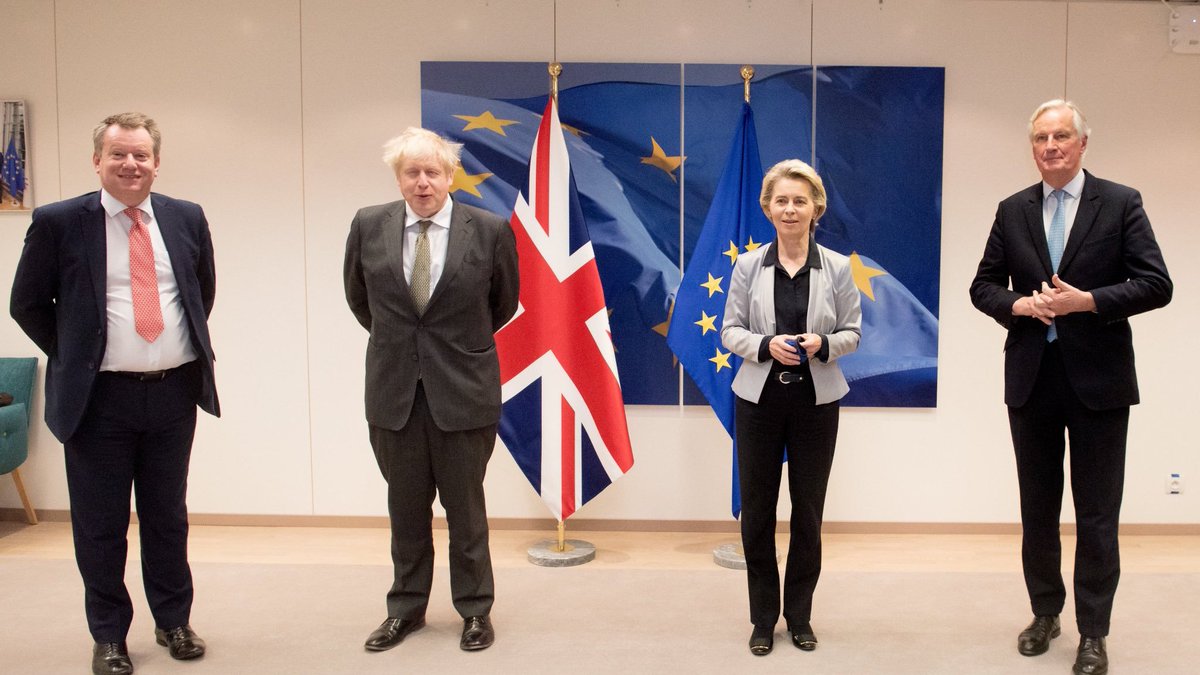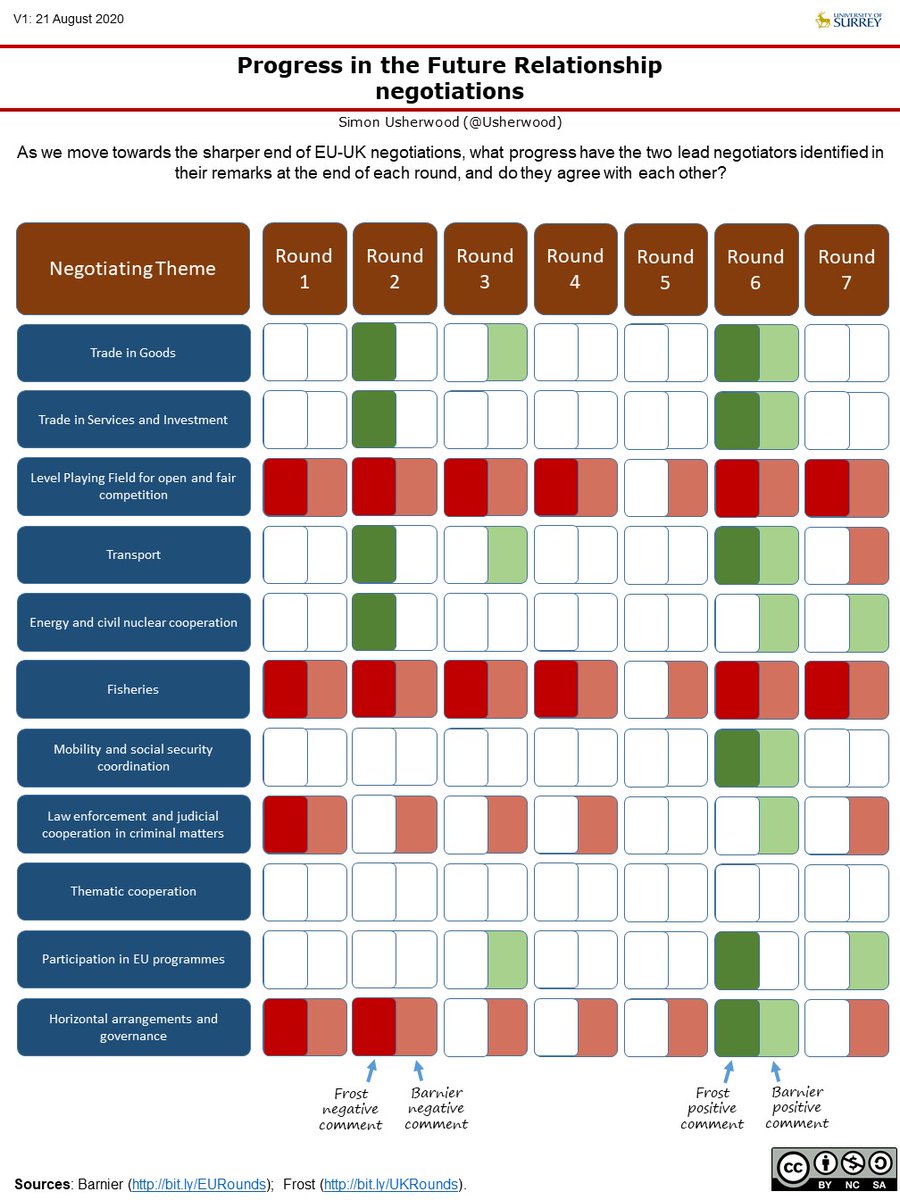
Right, I'm back from the market, so let's to illustrate the different kinds of deal on the table
1/
1/
When the UK was a member of the EU there was lots of cooperation on many different areas
(This is also what we have right now, because of the transition period)
2/
(This is also what we have right now, because of the transition period)
2/

The negotiations that are stuck right now are about a much more limited package of cooperation, mainly relating to trade (and fish)
3/
3/

If there is no deal, then there's no preferential cooperation for the UK as a whole with the EU (this is what the PM calls an "Australian style deal")
4/
4/

(In this case there would still be the Withdrawal Agt, which makes provisions on citizens rights and Northern Ireland, but nothing more general)
5/
5/
An imperfect analogy, but hopefully captures that changes is coming in any case on 31 Dec, and that 'Australia' isn't a deal in any real sense
6/
6/
Finally, don't @ me about my fruit choices
/end
/end
• • •
Missing some Tweet in this thread? You can try to
force a refresh






